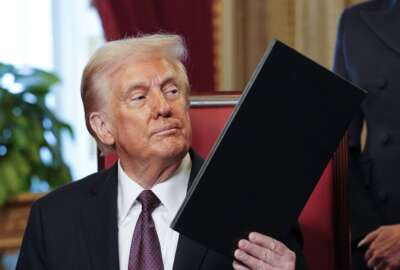
Insight By Optiv And Proofpoint
The latest Binding Operational Directive
As National Cybersecurity Assessment and Technology Services lead at the Homeland Security Department’s National Protection and Programs Directorate, Cameron...
As National Cybersecurity Assessment and Technology Services lead at the Homeland Security Department’s National Protection and Programs Directorate, Cameron Dixon has been close to the six Binding Operational Directives coming from DHS in recent years. One gives agencies 30 days to fix cyber vulnerabilities identified by DHS scanning.
The latest, from mid-October 2017, gives agencies 120 days to set a plan for the minimum implementation of the DMARC email authentication standard. “They can certainly get strong than that, but need to at least set a policy,” Dixon says. He adds, this will force agencies to take a good look at their email infrastructures, and prepare them to receive reports on email behaviors.
Moderator
 Tom Temin, Federal News Radio
Tom Temin, Federal News Radio
Tom Temin has been the host of the Federal Drive since 2006. Tom has been reporting on and providing insight to technology markets for more than 30 years. Prior to joining Federal News Radio, Tom was a long-serving editor-in-chief of Government Computer News and Washington Technology magazines. Tom also contributes a regular column on government information technology.
Guest
 Cameron Dixon, IT Specialist, National Cybersecurity Assessments and Technical Services, National Protection and Programs Directorate, DHS
Cameron Dixon, IT Specialist, National Cybersecurity Assessments and Technical Services, National Protection and Programs Directorate, DHS
Cameron Dixon is a public servant at the U.S. Department of Homeland Security, where he works to improve information security practices across the government. Cameron manages the DHS “Cyber Hygiene” network and vulnerability scanning service, pushes for the deployment of stronger encryption and security standards across federal agencies, and believes in dispelling magical thinking with great kindness.
Copyright © 2025 Federal News Network. All rights reserved. This website is not intended for users located within the European Economic Area.
Related Stories





